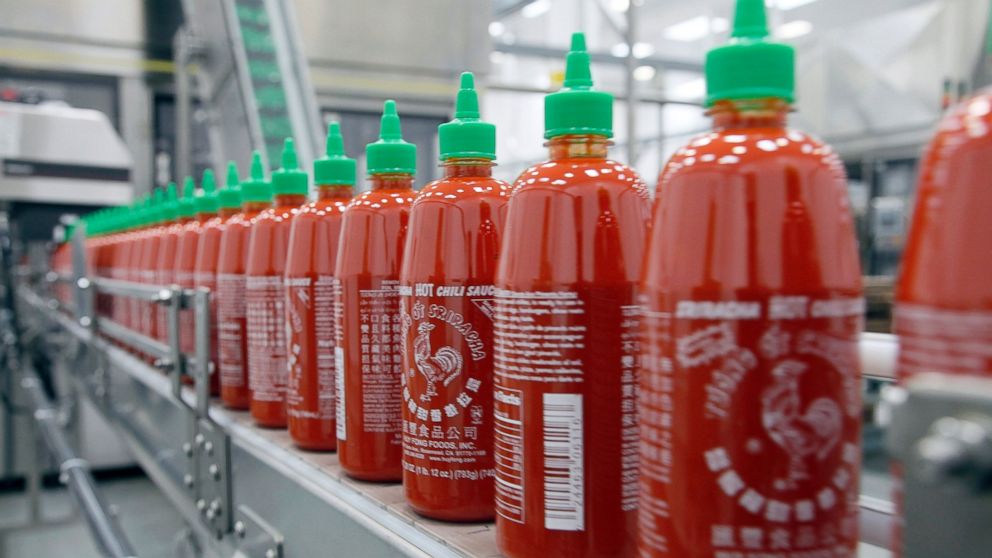Sriracha Lawyer Hopes Company Won't Be 'Nuisance' for Long
Sriracha lawyer sounds off on city council for "antagonizing" local businesses.

April 10, 2014— -- The maker of the popular hot sauce Sriracha won't have any trouble meeting a California city council's edict that it take care of its so-called odor problem, but the company, Huy Fong Foods, isn't warmed by the city's actions.
The city council of Irwindale, Calif., voted last night to ask its staff to prepare a resolution finding Huy Fong Foods to be a public nuisance.
Read More: California City Declares Sriracha Maker a Nuisance
The city council is then expected to declare the business a nuisance when it meets in two weeks, on April 23.
John Tate, attorney for Huy Fong Foods, said, "I don’t think the outcome is in doubt."
At that point, the company will have 90 days to remediate the situation, or the city could say it "may or may not do something," said Tate, from the Los Angeles office of law firm Davis, Wright, Tremaine.
Tate called the city council's actions "antagonizing" and "fairly hostile to local business," because "the company has already committed to resolving the issue and think it will be well in hand by June 1."
"The company said all along they are interested in moving this issue along, because it's somewhat distracting. Last night, was the first time [the council] put a date on it," Tate said.
The company's troubles have attracted nationwide attention, causing trepidation among aficionados worried that it may cause a shortage of the specialty hot sauce.
Fred Galante, an attorney for the city, said, "The council directed city staff to prepare a resolution for council consideration at its next meeting finding that Huy Fong caused a public nuisance as a result of strong odors emanating from its facility, but made explicit that they do not anticipate having to enforce the decision if Huy Fong makes good on its promise to correct the matter."
The company has communicated and met with the air quality management district for that area, which has conducted tests and reported their findings last month.
The company was in the process of analyzing the results, Tate said.
"For reasons only the city council can explain, they weren’t satisfied with that," he said. "It’s really weird. This is one of the things that causes the company some concern."
The air quality management district has received 61 complaints to date, Tate said, and around 40 of those complaints were submitted by the same four or so people.
"This is not a widespread problem. These are perpetual complainers looking for some kind of a handout," Tate said.
Tate claims many people don't smell anything, even when they tour the plant.
He said the company wants to try to solve the problem, "but in the scheme of things, this is not one of those situations where a town is evacuated. These are basically cooking odors that some people decided to make an issue of."
Once the chili harvest arrives in about five months, the company will start to grind the chili, which is what sparked the complaints of odors.
"One of the reasons we are trying to get this resolved now is so we don’t have complaints. It’s entirely possible no matter what we do, someone will complain," he said. "They’re complaining now when they’re just pouring stuff into a bottle. How far does that smell travel?"
In the meantime, he said the company is working on modifying the filtration system and the ways in which fumes are funneled in it, among other steps.




